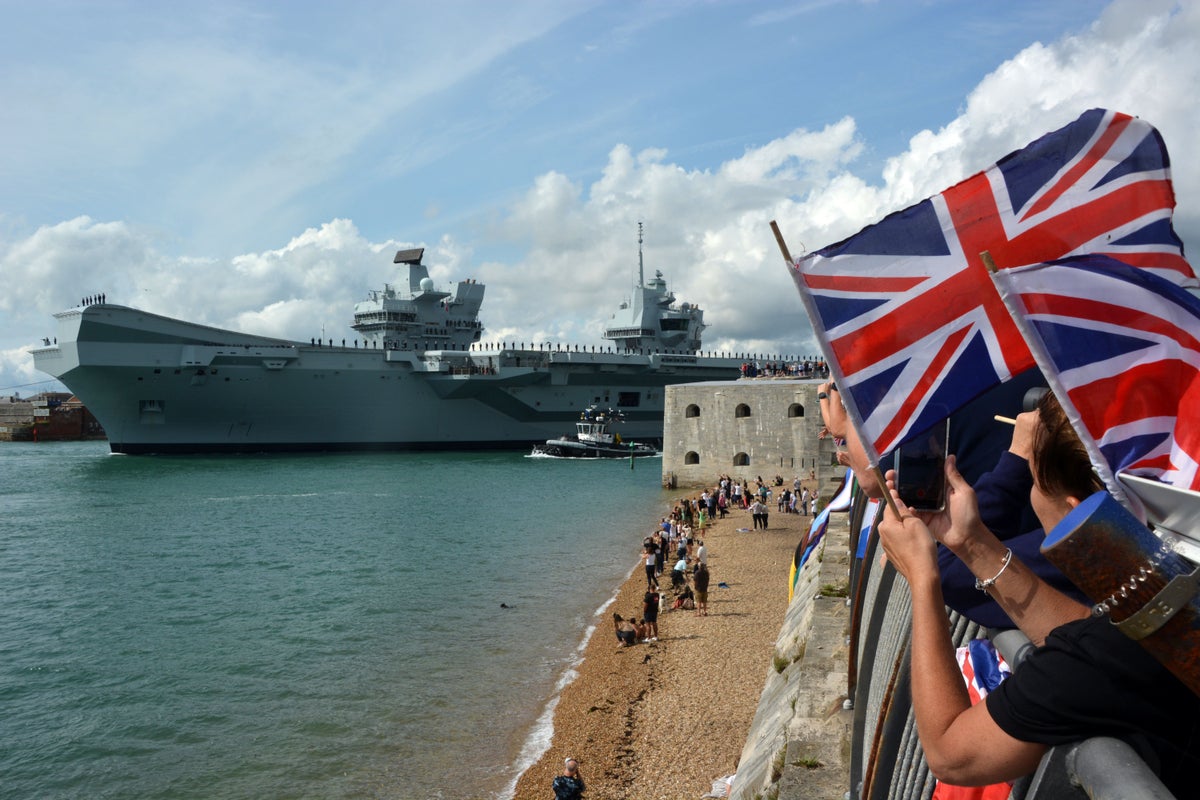
Hundreds of families and well-wishers have waved off the Royal Navy aircraft carrier HMS Prince of Wales as it set sail for exercises off the US – a year after it broke down a few miles into a similar trip across the Atlantic.
The £3 billion warship suffered a broken propeller shaft after it sailed from Portsmouth Naval Base in August 2022 for a diplomatic mission to carry out exercises with the US Navy, the Royal Canadian Navy and the US Marine Corps.
The carrier came to a halt off the Isle of Wight and was brought under tow back into harbour for the problem to be identified.
It was then taken to the Babcock shipyard where it was built in Rosyth, Scotland, to undergo the repairs to a propeller shaft, which have taken nine months to complete.
Fears had been raised that the 65,000-tonne vessel was being “cannibalised” for parts to be used on sister ship HMS Queen Elizabeth but then-defence secretary Ben Wallace said this was “perfectly normal” and the ship would return to service by the autumn.
The carrier moved out of dry dock at Rosyth and into the River Forth on July 21 before returning to Portsmouth Naval Base on August 4.
During the three-month deployment, the carrier will carry out exercises with drones for delivering supplies without the use of helicopters, landing and launching F-35B Lightning stealth fighters and operating with Osprey tilt rotor aircraft from the US Marine Corps.
Commanding officer Captain Richard Hewitt said: “We are all excited for the longest deployment of HMS Prince of Wales.
“Being the first to operate with this level of drones will be a huge achievement and keep us on the front foot as we prepare for the next major Carrier Strike Group deployment in 2025.”
The ship’s company will conduct trials in the English Channel with UK firm W Autonomous Systems to assess the feasibility of drones delivering supplies to Royal Navy vessels at sea – initially flying in up to 100kg of stores.
A navy spokesman said: “Both the Royal Navy and its supporting flotilla from the Royal Fleet Auxiliary are experimenting with drone technology – saving launching large, expensive naval helicopters to perform the missions.”
And while in the US, the ship will embark F-35B stealth fighters.
Commander Martin Russell, in charge of the ship’s air group and flight deck operations, said: “My team are really excited to tackle the final phase of testing which will expand the F-35’s awesome capabilities even more – and to be the first to land and launch new types of drones on our deck.
“The deck team are ready and raring to go.”
The carrier and its 750-strong crew are set to return to the UK by Christmas.







